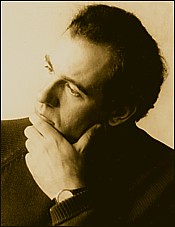Edward Rutherfurd Interview
November 11, 2009
HistoricalNovels.info interviews
the author of New York
 It was a pleasure to have Edward Rutherfurd visit the blog on November 11, 2009. His novel New York covers the city's history from the seventeenth century to the present, with a special emphasis on the Revolutionary War period.
It was a pleasure to have Edward Rutherfurd visit the blog on November 11, 2009. His novel New York covers the city's history from the seventeenth century to the present, with a special emphasis on the Revolutionary War period.
After writing five novels set in the British Isles and one in Russia, what led you to write about New York?
The idea originally came to me in 1991, when I'd been living in New York City for almost a decade, my children were in New York schools, and I was even on the board of a coop. But I was unable to structure the book, and wrote London instead. It was William Thomas, my editor at Doubleday, whose gentle persuasion, old-fashioned editorial care and historical knowledge brought this project back into being, and I'm grateful to him.
The largest portion of New York takes place during the Revolutionary War, in which many prominent New Yorkers remained loyal to England. Does your background as an English citizen help you sympathize with these loyalists?
Not exactly. My own ancestors include Philadelphia Quakers and plantation owners in Carolina. During the Revolutionary War, my Rutherfurd ancestors left America, but their cousins remained in New Jersey, and family history helps me relate to the anguish of conflicted loyalties that was common at that time, when even Ben Franklin and his son were on opposite sides.
I also think that the stories I'd already written about the conflict between the English Parliament and King Charles in the 1600s helped me appreciated vividly what the Patriots were really about. They were saying to King George: "We are free-born Englishmen with all the rights - such as no taxation without representation - that Englishmen won a century ago." The British government, quite wrongly, was treating them as second-class citizens just because they lived in the American colonies. But many colonists, clearly, were conflicted about the break with Britain.
The shock for me came with the conduct of the war. I'd been appalled by the inaccuracy of Mel Gibson's The Patriot and was determined to be fair to the British side as well. But while working on this period with Professor Edwin Burrows, the co-author of Gotham, I came to understand the terrible British treatment of American prisoners in the prison ships - and so that, also, is recorded in my book.
What authors besides, obviously, James A. Michener, have influenced your work?
Authors who can achieve epic scale always impress me. The great Japanese classic The Tale of Genji (I still love the old Waley translation), or War and Peace - these are heroic works to me. But I love authors who take trouble with their research: C.S Forester, Bernard Cornwell, Gore Vidal. Simon Sebag-Montefiore is excellent too.
Review of New York by Edward Rutherfurd
See listing for New York at Powell's Books
See listing for New York at Amazon.com
Back to Directory of Author Interviews
Enjoy this page? Please pay it forward. Here's how...
Would you prefer to share this page with others by linking to it?
- Click on the HTML link code below.
- Copy and paste it, adding a note of your own, into your blog, a Web page, forums, a blog comment, your Facebook account, or anywhere that someone would find this page valuable.